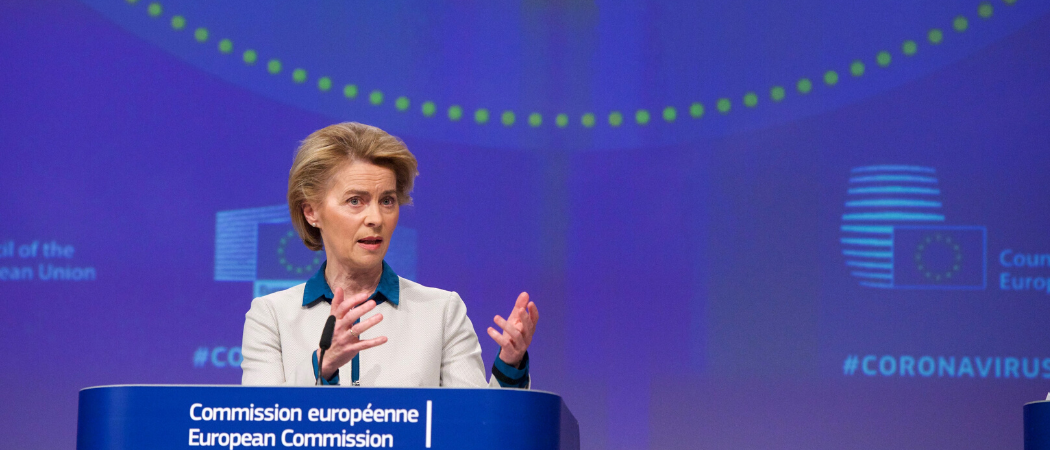Ursula von der Leyen promises reworked budget will provide forceful response to crisis, as she confirms fundraising event for vaccine research on May 4

Photo credit: European Commission.
The 2021 - 2027 long-term EU budget has to be “completely different” in order to drive economic recovery from the coronavirus outbreak, the European Commission president said on Wednesday.
Ursula von der Leyen said a re-worked seven-year budget would front load “huge investment” in the first three years to get Europe back on its feet following the large economic shock caused by the virus.
“The next EU budget has to be the European answer to the corona crisis. It has to be different; completely different to normal EU budgets,” von der Leyen said.
“We’re not talking about a billion [euros], we’re talking about a trillion, looking at the investment initiative that has to be done,” she said.
The president confirmed she will host a virtual pledging conference on May 4 to raise money to fill “immediate funding gaps” in vaccine research.
The fundraising session will be hosted by the commission alongside the Global Preparedness Monitoring Board; the Coalition for Epidemic Preparedness Innovations; Gavi, the Vaccine Alliance; the Wellcome Trust; and the Gates Foundation.
The Global Preparedness Monitoring Board, a body run by the World Health Organisation and the World Bank, estimates that $8 billion is needed to pay for drug and vaccine development and to start to scale up production across the world.
"I hope that countries and organisations all over the world will respond to this call," von der Leyen said.
Budget pain
With EU governments facing all-consuming health and economic emergencies at home, some rate the chances of signing off on the full seven-year Brussels budget, worth €1.095 trillion, as slim.
Money was a big obstacle in talks even before coronavirus. The most recent attempt to build consensus amongst European capitals on the budget was a near-30 hour summit in February, which ended with little progress.
The EU chief said it is “an advantage” for Europe to start a new budget cycle so soon after the crisis. Brussels is expecting to see the new proposal on April 29.
The president also argued that the “political necessity” for the Green Deal, a flagship policy to remake European economies using green technologies, is as strong as before the crisis.
“Climate change didn’t stop, it’s ongoing. Fighting it is in our interests, unless we want to pay heavily for the cost of non-action,” von der Leyen said.
In another speech Thursday, von der Leyen also emphasised the importance of investing in 3D technology to “help us to be more independent”. Technological sovereignty has shot back up the agenda in the (virtual) corridors of Brussels, with the crisis exposing a heavy reliance on Chinese suppliers.
Absent an agreement by EU governments this year, Brussels could extend the current budget cycle for at least one year. Another option would be for the commission to operate month-to-month from January 2021. Under the budget regulations, it can simply take an extension of the 2020 budget one month at a time, as it has done in past budget deadlocks.
The EU's budget accounts for about 1 per cent of gross national income across the bloc but lawmakers in the Parliament are already suggesting GNI is no longer a good basis for making up the budget, because of the coronavirus hit to the economy.
EU Council President Charles Michel, who will discuss a reworking of plans for the budget during a videoconference summit of the bloc’s leaders’ on April 23, said “a decision has to be taken” by member states. “We need to make the most of this opportunity,” Michel said.
The former Belgian prime minister called for a new “Marshall Plan”, alluding to Europe’s reconstruction after World War II.
“Adjustments [to the current budget] will have to be made. [But] digital and green deal plans are crucial,” he said.





 A unique international forum for public research organisations and companies to connect their external engagement with strategic interests around their R&D system.
A unique international forum for public research organisations and companies to connect their external engagement with strategic interests around their R&D system.